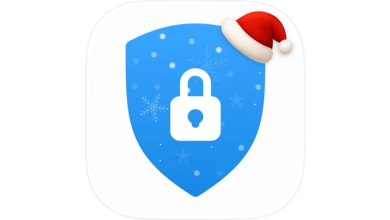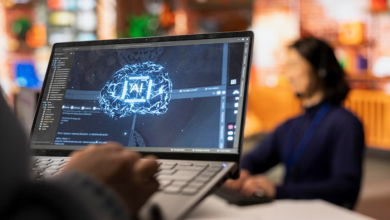
Alright, cards on the table, who isn’t glued to the internet for, like, half the day? Whether you’re doomscrolling through Insta, frantically deleting work emails, impulse-buying weird kitchen gadgets at 2 AM, or just falling down a YouTube rabbit hole, your whole life’s kind of stitched together with Wi-Fi at this point. But, hey, all that convenience? Comes with its own batch of headaches. Hackers? Scammers? They’re basically lurking everywhere, just waiting for a shot at your passwords or private info. It sounds paranoid, but honestly, you must keep your guard up if you don’t want to end up in a bad situation.
The good news is it doesn’t take a tech guru to stay safe. There are some straightforward, user-friendly tools that can have a huge impact. Two of the most powerful are VPNs (Virtual Private Networks) and 2FA (Two-Factor Authentication). And they’re only the beginning.
What is a VPN and why do I need to use it?
A VPN may seem complicated, but it really is simple. Let me explain. Imagine a private tunnel between you and the internet. Usually, when you’re on the web, your internet service provider and anyone else who might be spying on you get to look at everything you’re doing. But if you’re using a VPN, all your online activity is encrypted and sent through a protected server in another location. That keeps your actual location and identity a secret.
So how does this affect you? It means if you are on public Wi-Fi, e.g., a coffee shop or airport, you aren’t sharing your sensitive data with would-be hackers. It also means that you don’t have to worry about being tracked or spammed with invasive targeted ads. And if you’re traveling to a country and find some content restricted, a VPN will do the trick.
There are numerous VPN services available both free and paid. The paid services are more stable and don’t reduce the speed of your connection as much as the free ones do. Nevertheless, even a simple VPN is a lot better than nothing. Else, you can also explore an all-in-one security bundle, which might be easier on the pocket for a wide range of security services that you will get.
What is 2FA, and how does it safeguard accounts?
There’s nothing worse than drawing a blank on a password when all you want to do is look at your email — or, God forbid, reset your password and jump through hoops just to forget it all over again 10 minutes later. And if we’re being real, most people have laughably bad passwords. I mean “password123” levels of genius. Or they’re using the same thing for Netflix, bank account, and… let’s say work items as well (don’t do this). That’s where 2FA, that’s two-factor authentication, to use a simpler name, actually pays off.
Think of 2FA like this: even if a hacker gets that embarrassingly obvious password, there’s an extra hoop to jump through. Maybe it’s a code texted to your phone, or you gotta use your fingerprint, or let your face get scanned like you’re in a spy movie. The point is, just knowing your password isn’t enough anymore. Cracking the safe isn’t going to do squat if there’s a big ol’ deadbolt on the vault too. Sure, it might take an extra few seconds, but at least your stuff won’t be wide open for any random criminal online.
Most of the popular websites and apps support 2FA, Google, Facebook, Amazon, to name a few. You simply have to activate it in the settings. If you haven’t done so already, do so now.
Secure browsers and privacy extensions
The web browsers are not of an equal calibre. Some are faster, others are good-looking and some are simply good in privacy. If you are still browsing with the browser that came on the phone or your computer, it is really time to switch.
Take Firefox or Brave. These bad boys are designed with privacy in focus, sending ads and creepy trackers right out of the way. In addition to this, you can throw in as many extensions that your heart desires: ad blockers, cookie wranglers, HTTPS-Only things. You name it. Honestly, it’s not rocket science. Download, install, done. Half the time you won’t even be aware that they’re at work — unless, of course, those bloated, sluggish websites? They actually load fast. And lo and behold, your screen is not covered up with a pile of pop-up rubbish and autoplay!
Password Managers
Seriously, who has time to remember a dozen or so odd passwords, right? Not me, that’s for sure. So, what do people do? Well, they use the same one for everything, sort of asking hackers in for tea and biscuits. And that is where a password manager enters the scene, an electronic doorman for your logins. It helps you to come up with powerful and distinctive password for all your accounts, as well as to keep them under lock and key. It is only your one master password that all you need to recognize. That’s it. The manager handles the rest. In fact, some of them will even inform you when one of your passwords shows up in one of those data breaches out there so you may change it before anything bad happens. Pretty slick, honestly.
If you’re worried about having your passwords in one place, then there is no need for concern. These are created with strong encryption and are even more secure than self-saved passwords. Just ensure you get a password manager from a cybersecurity company you can trust.
Don’t forget about software updates
This is not a tool, really speaking, but it is very important, nevertheless. You have seen all those irritating update messages? Don’t dismiss them. They tend to have patches that would fill up the system’s holes that the hackers are trying to force their way through.
It can be your smartphone, laptop, browser, or even apps, you need to keep them up to date. It takes a moment or two and it could save you a bunch of troubles in the long run.
Wrapping it all up
Don’t feel like you need to get to be some kind of security savant or full Mr. Robot overnight. Just a basic start: Always connect to a public Wi-Fi using a VPN. Enable two-factor authentication (yes, those unwanted codes). Experiment with a password manager – you will never need to type “password123” everywhere. Oh, and one more thing: update, update, update those apps. Each of those is like another layer of armor. Put them up there, and now you are much less of an easy target. So… surf the wild web, post to suit your heart’s content, and perhaps dream a little more peacefully knowing that the virtual you isn’t wandering about out there vulnerable. Happy surfing!




